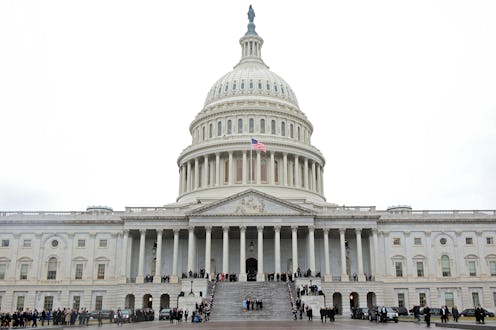News
HR 7 Could Possibly Die In The Senate

The first few days of Donald Trump's presidency have already been a huge blow to reproductive rights. The Global Gag Order was reinstated and a nationwide heartbeat bill is being considered, to start. And on Tuesday, an anti-abortion bill that would make it a hell of a lot harder for women to access a safe, affordable abortion passed through the House of Representatives. However, HR 7 must pass through the Senate before it can become law.
The No Taxpayer Funding for Abortion and Abortion Insurance Full Disclosure Act of 2017 would codify the Hyde Amendment into permanent legislation, meaning no women who are on Medicaid, military service members, or federal employees could use their insurance for an abortion. But it would also affect private insurance bought with Affordable Care Act subsidies as well.
The bill now goes to the Senate, where it's likely to face a harder challenge than it did in the House. At least 60 or more senators must vote yes on the bill for it to become law — and there are only 52 Republican senators. That doesn't mean it won't pass, of course. According to GovTrack, there were three Democratic representatives in the House who did vote for HR 7, which passed 238-183.
Pro-choice advocates are furious about the bill. Destiny Lopez, the co-director of All* Above All, said in a statement to Bustle, "Already, too many women are denied abortion coverage because of how much they earn: HR 7 is cruel and callous legislation that would make these discriminatory bans permanent law. This is all part of the Trump-Pence agenda to punish women."
A bill like this has been proposed before, in 2013 and 2015. Each time, as Mother Jones reported, the legislation passed the House, but failed in the Senate. And that was even when there were less Democrats in the Senate then there are now. Democrats actually gained two Senate seats in the 2016 election.
All this to say that if senators vote strictly on party lines, the measure is unlikely to pass the Senate, because it must receive 60 votes, not just a majority. However, if, like the House, some Democrats vote for the bill, we could see it head to Trump's desk, where it is obviously likely to be signed into law.